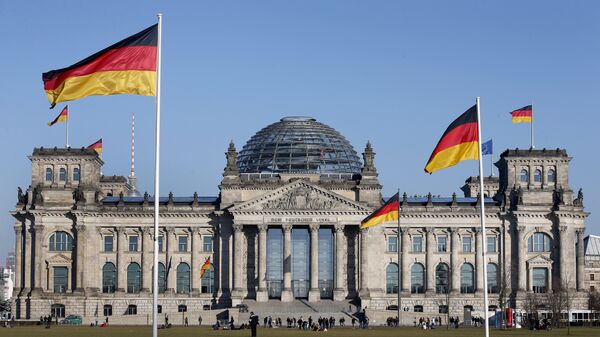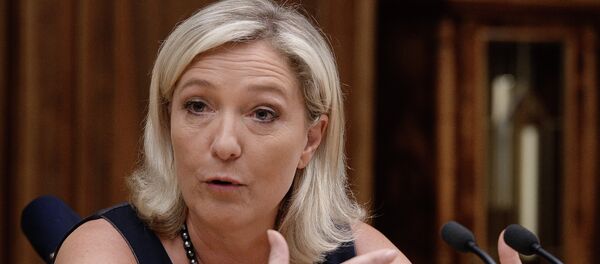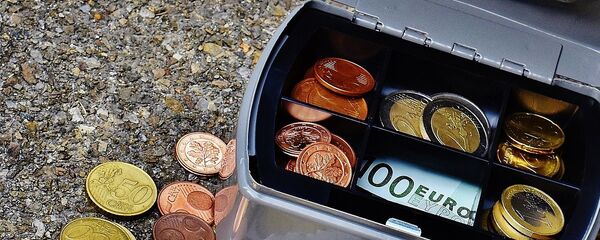MOSCOW (Sputnik) — Germany’s dominance in the EU economic affairs will remain the biggest obstacle to bloc's post-crisis recovery as long as Berlin continues to abuse its dominant position as creditor-in-chief, increase its trade surplus and hinder necessary EU reforms to advance its narrow interests, Sebastien Cochard, a right-wing National Front (FN) candidate in the upcoming French legislative election, told Sputnik.
The candidate explained that Germany’s immense trade surplus, which is the amount by which the value of a country's exports exceeds the cost of its imports, was generated by suppressing wages to subsidize exports and the lower inflation rate in Germany, which makes the cost of producing goods and services there lower than in other EU countries.
"Germany’s trade surplus is deemed to be always on increase and that is detrimental for its partners in the EU. This cannot be reduced without interference. I hope we have enough members of the French parliament, as well as of the new Italian and Austrian parliaments, to push through some changes of the EU governance," Cochard stressed.
He underlined that the FN in the future needs to bridge alliances with the right-wing parties across the EU in the attempt to redirect the economic policy of the bloc. "We have to have a populist government in France, in Italy and, possibly, in Spain in order to force Germany to take real steps," he said.
According to the politician, major macro-economic imbalances as well as the insufficient convergence between the countries’ economies prior to the EU's establishment are the main causes of the eurozone economic crisis.
"People are happy to have the same currency and travel freely within the EU. It is difficult to explain them the macroeconomic phenomenon of major imbalances before the creation of the European Union. There should have been a total convergence of economies but it was not the case. It was a political decision; the economies were not on the same pace," he pointed.
The legislative election will be held in France in two rounds — on June 11 and June 18.







